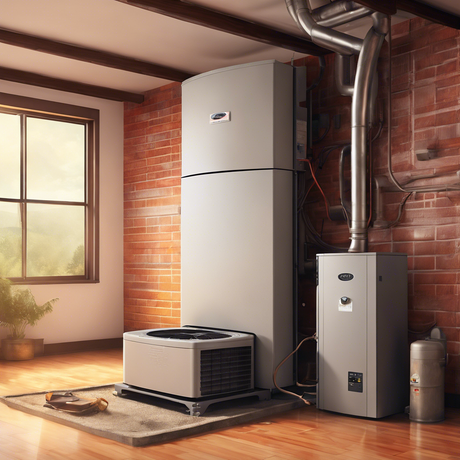- No products in the cart.
Understanding HVAC Efficiency Ratings: What You Need to Know
29
Jan
Heating, ventilation, and air conditioning (HVAC) systems play a crucial role in maintaining a comfortable and healthy indoor environment. However, with the rising energy costs and increasing environmental concerns, it is essential to consider the efficiency of these systems. HVAC efficiency ratings provide valuable information that can help homeowners make informed decisions about their heating and cooling needs. In this essay, we will explore the importance of understanding HVAC efficiency ratings and what you need to know.
HVAC efficiency ratings are standardized measurements that indicate how effectively a system converts energy into heating or cooling output. These ratings help consumers compare the efficiency of different HVAC systems and make informed choices based on their energy-saving potential. The two most common efficiency ratings for HVAC systems are Seasonal Energy Efficiency Ratio (SEER) for cooling and Annual Fuel Utilization Efficiency (AFUE) for heating.
SEER is a measure of the cooling output of an air conditioner or heat pump divided by the energy input over a typical cooling season. The higher the SEER rating, the more efficient the system is at cooling. In the United States, the minimum SEER rating for new residential air conditioners is 13, but more efficient models can have SEER ratings of 20 or higher. Investing in a higher SEER-rated system can result in significant energy savings over the system's lifetime.
AFUE, on the other hand, measures the efficiency of a furnace or boiler in converting fuel into heat over a typical heating season. It is expressed as a percentage, with higher percentages indicating greater efficiency. The minimum AFUE rating for new residential furnaces in the U.S. is 80%, but high-efficiency models can have AFUE ratings of 90% or more. Upgrading to a high AFUE-rated furnace can lead to substantial fuel savings and reduced emissions.
While SEER and AFUE are important efficiency ratings to consider, it is crucial to understand that they are not the only factors that determine the overall efficiency of an HVAC system. Proper sizing, installation, and maintenance also play significant roles in the system's performance and energy efficiency. A well-sized and correctly installed system, along with regular maintenance, can maximize energy savings and prolong the system's lifespan.
It is worth noting that investing in a highly efficient HVAC system may require a higher upfront cost. However, the long-term energy savings and potential rebates or incentives from utility companies or government programs can offset the initial investment. Additionally, energy-efficient HVAC systems contribute to reducing greenhouse gas emissions and promote environmental sustainability.
When considering HVAC efficiency ratings, it is essential to consult with a qualified HVAC professional who can assess your specific needs and provide expert advice. They can help you understand the ratings, evaluate the efficiency options available, and guide you in selecting the most suitable system for your home.
In conclusion, understanding HVAC efficiency ratings is crucial for homeowners who want to make informed decisions about their heating and cooling systems. SEER and AFUE ratings provide valuable information about the energy-saving potential of HVAC systems, but other factors such as sizing, installation, and maintenance also impact overall efficiency. Investing in an energy-efficient HVAC system can lead to long-term energy savings, reduced environmental impact, and improved comfort in your home. So, take the time to research and consult with professionals to make the best choice for your HVAC needs.













